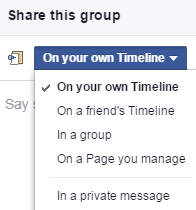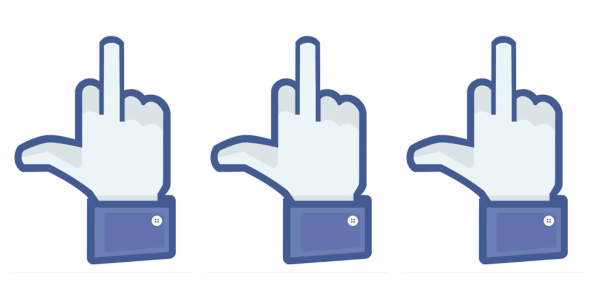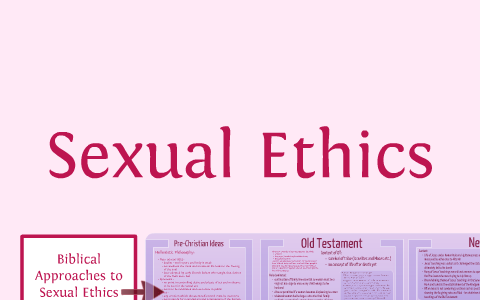Years ago the place I worked would send out EDMs for Father’s/Mother’s Day to a database had around 40,000 users, who would get a message like “treat your father to XYZ this Father’s Day”. What do you think happened? We’d always get a few replies like “my father just died, you asshole”. With a large enough user base, even a combination of factors that you think is unlikely will happen to many of your users. As your user base rises it’s your responsibility to exponentially increase the research, thought and care you put into your user experience and functionality to do no harm.
21% of the world actively use Facebook so it’s especially important. While I hate moral panics about generalised “social media harms”, there are lots of specific features of Facebook that harm subsets of their users in a similar way to the Mother’s/Father’s day. Here are eight.
1. The “real names” policy
You’re supposed to use your real name (whatever that means) on Facebook so that you can be “authentic”. I’ve posted about the problems with this before here here. If you want a one-sentence explanation of the fatal flaw in Facebook’s policy, here’s part of the policy itself:

The policy remains in force, although thanks to the great work of the #MyNameIs Coalition, Facebook is in talks to hopefully improve the policy, acknowledging that some users are maliciously reporting people for fake names as a way to target/harass. Since this policy’s not a problem for the majority of users, it’s not given high prominence.
2. You can add people to groups
You should not be adding people to Facebook groups without their consent even if they’re your friend and you think they’d be interested. Because there are — ahem — other options:

There are LOTS of opportunities to use this to bully/abuse. Again, groups aren’t even a popular feature of Facebook and most Facebook harassment takes other forms so how many people would kick up a fuss?
3. Many of your friends’ posts aren’t shown
It’s understandable why Facebook’s algorithm for your timeline is now very curated: we have an average of 338 friends and with frequent posting from all of them we’d be overwhelmed. However, this means is that you’re not seeing a lot of your friend’s posts (according to a 2013 Stanford study, 65% of your friends will not see a given post).
So, someone’s having a hard time, is depressed, anxious or worse. They post something on Facebook and get little to no engagement on their post. This is likely to exacerbate the problem and give people the impression that their friends care less than they do. Posts that reach out for help may be less likely to get engagement than other posts and hence will be intrinsically punished by the algorithm.
4. Showing some very detailed activity for some friends
This is the converse of Facebook’s feed curation. Out of your average of 338 friends, you probably interact a lot with a small subset. So yes, there are people whose activity we’d want to see in more detail. But then it gets to something like this:

My friend changed her profile picture. I saw this come up in my feed at the time. Then another mutual friend liked the picture over a week later and it came up in my feed again.
Most of the time it’s just annoying but again in other cases it can harm. People make jokes about Facebook-stalking; here Facebook identifies people you’re particularly interested in and stalks them for you. This can cause a lot of damage especially to people with obsessive personalities, reinforcing destructive behaviours.
5. Message read receipts
Facebook messages (and the Messenger app) will show when a particular message you sent to a friend was seen:
This is very intrusive. You might want to leave a long (possibly infinite!) time to respond to a message. On the sender’s side, again depending on the context and personality type it could cause anxiety and help fuel obsession. Again, Facebook here tacitly encourages close monitoring of friends’ reactions to your messages, taking away the feeling that you can respond in your own time.
To not give out read receipts, you have to turn off chat and turn on email notifications for Facebook messages. Then when you get a message, don’t click on it but wait about 20 minutes until Facebook emails you the full message content, you can then read it without generating a receipt. If you’re waiting on something important and are anxious to read the message soon, this is not a great solution either.
6. Arbitrary policy enforcement
If you’ve ever reported some particularly awful content to Facebook you’ll know that most of the time, you’ll get a report saying that this content does not violate their community standards. Here’s one I made:
Even blatant breaches will typically get removed only if hundreds of people report it (because this will increase the chance that someone who actually has time to process the report will get it). Unless it’s something like women’s nipples and then it will get removed asap!
The reason is that Facebook employs an army of under-paid, under-resourced and traumatised The Laborers Who Keep Dick Pics and Beheadings Out of Your Facebook Feed. Yes they have a large user base but they also made $700 million in profit in the last quarter of 2014. I’m sure they could put a bit more money into this.
7. “You should add more friends”
There’s an account I use just to run Facebook ads, meaning it has no friends. When the newsfeed (from pages the account follows) ends, Facebook now shows this.

What might that message do to someone experiencing anxiety, loneliness or depression? Yes the intent is likely to be targeting people who haven’t found enough of their friends on Facebook (although a friend of mine with 250 Facebook friends got it too). But again that’s the privilege of just thinking about your features from a mainstream perspective. There will be people who will be harmed by this.
8. The memories feature
Facebook now dredges up your posts from this day (and is getting more insistent about bugging you with them in the feed). Again most of the time it’s something you may choose to re-share or not. If youre year involved painful memories, it’s probably not a good idea for your auto-generated Year in Review video to contain your house burning down or children who are now deceased. These articles highlight some examples.
You can now block certain people or events from appearing in the memories posts but that’s probably still not good enough.
9. Use this copied link
If you open the iOS app (don’t know about Android) with a URL copied to your clipboard it will invite you to post that link. That link you copied probably for other purposes. What could possibly go wrong?
10. Your friend likes this page
You know those posts that come up from pages whose only connection to you is that your friend likes that page? If it’s a good friend who you interact with on Facebook it can be pretty cool (although as per #4 it can be inadvertent stalking). But for the tiny percentage of cases where it’s someone who has [recently] died, it sucks. It sucks ass.






0 Comments